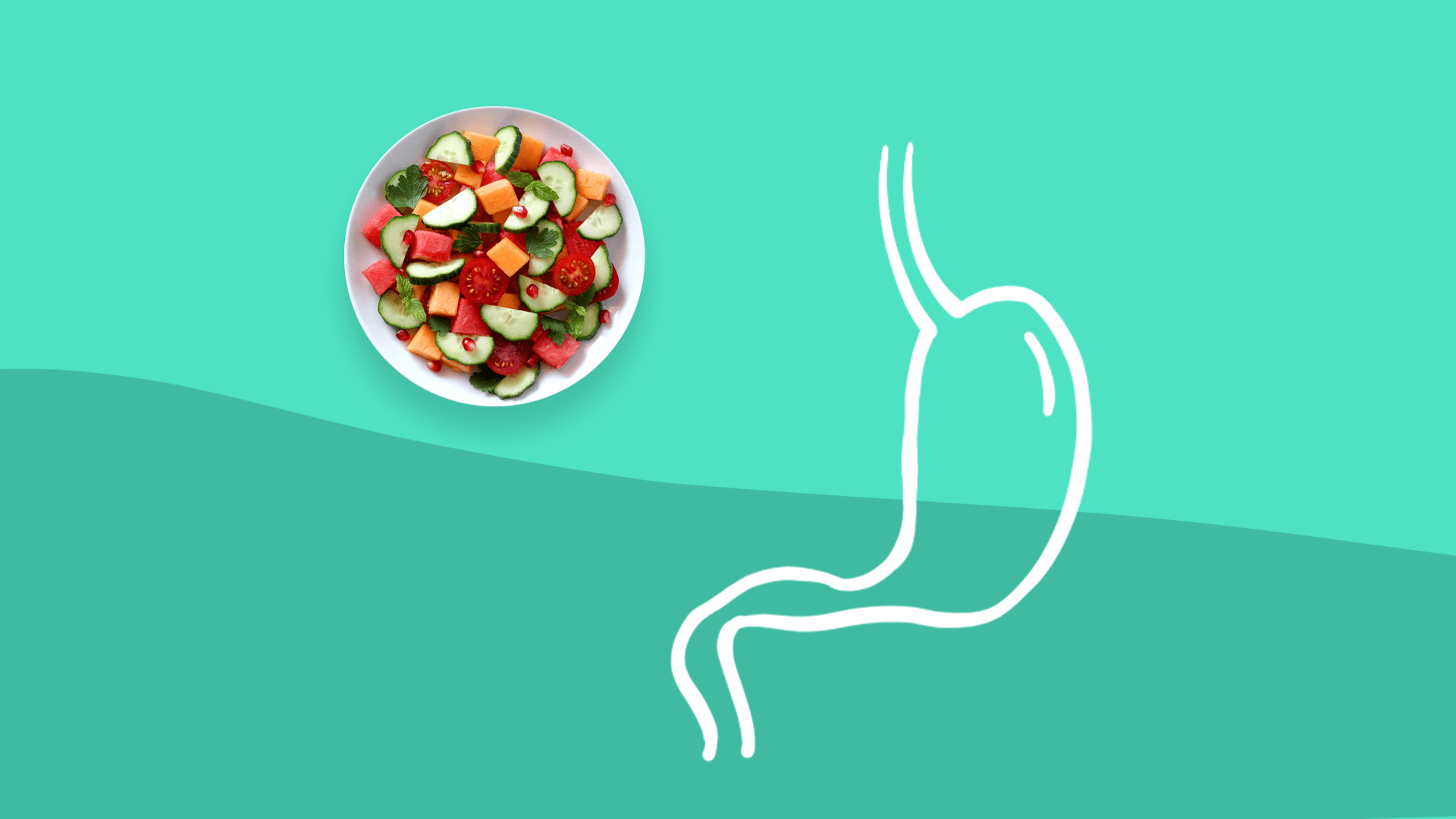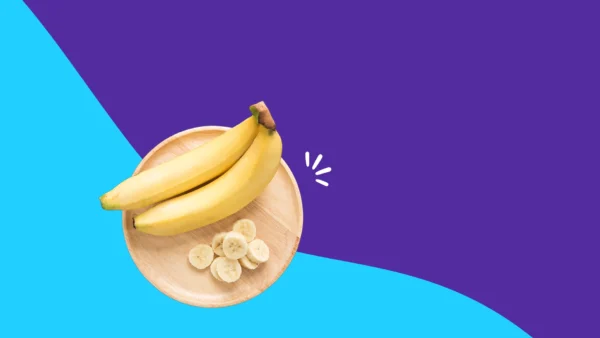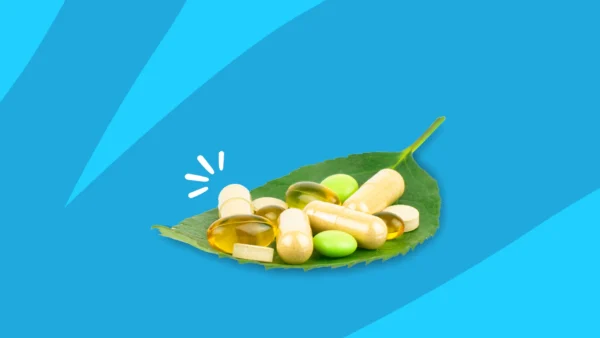Gastroesophageal reflux disease, aka GERD, is acid reflux that won’t quit. Instead of happening once in a while—or only under certain circumstances, like after eating spicy food—GERD is chronic, occurring more than twice a week. It is a common condition, affecting up to 20% of the population. Heartburn is one symptom of GERD, along with sore throat, bitter taste in your mouth, belching, chest burning, nausea, and sometimes difficulty swallowing. In children, symptoms can include burping, refusal to eat, stomach pain, vomiting often, or having hiccups.
GERD happens when the muscle in charge of tightening your esophagus isn’t working properly and allows stomach acid to flow back up into the esophagus. In adults, GERD can be caused by: smoking, certain medications, obesity or being overweight, excessive alcohol use, or hernia. Luckily, there are home remedies that can help—just speak to your healthcare provider before trying them if you’re pregnant, or treating GERD in a child.
What is the best diet for GERD?
Diet modification is a fairly easy way to relieve symptoms of GERD and keep you from having frequent, sometimes harmful episodes of acid reflux. “Dietary modifications are perhaps the most important modifications one can make if they suffer from GERD,” says Jose Lopez, MD, a surgeon at Austin Surgeons in Texas.
There is no particular diet that is better than any other. For example, a keto or Mediterranean diet may or may not help your GERD symptoms depending on your triggers and lifestyle. It’s best to eat intuitively and mindfully, paying attention to how and what you eat to identify how your body feels best. Small, frequent meals are better for GERD than the typical three large meals a day.
3 types of foods to eat
While there is no official “GERD diet,” if you’re experiencing GERD symptoms, there are a few types of foods that can help alleviate symptoms and decrease acid reflux symptoms. There are three main categories that can help.
1. High-fiber foods
Research shows that fiber can improve GERD. Why? Overeating can lead to acid reflux. That’s because a too-full stomach can prevent the bottom of your esophagus from closing all the way. High-fiber foods increase feelings of satiety, which can keep you from consuming too much. Good foods to try include whole grains, like brown rice and green vegetables, such as broccoli, artichoke, kale, spinach, and Brussels sprouts.
It should be noted however, that some people have a slow emptying stomach, a condition called gastroparesis. In these patients, a large high fiber meal may cause more reflux and bloating.
2. High water-content food
Fruit and vegetables packed with water can help to improve hydration and dilute stomach acid. They’re also low in fat and sugar, which can exacerbate symptoms. Add things like watermelon, cucumbers, celery, and lettuce to your daily eating plan.
3. Alkaline foods
Alkaline, or basic, is the opposite of acidic. Since GERD is caused by too much acid flow into the esophagus, consuming foods that are low in acid (high on the pH scale) can counteract excess acidity. Anything low in acid content is good, for example bananas, melon, and cauliflower.
8 foods to avoid
There are some foods that have higher acidity than others. If your acid reflux is worse after you eat, try avoiding these foods, which are common triggers for acid production.
1. Fatty foods
You know that feeling of having a rock in your stomach after an indulgent treat, like fried dough or a blooming onion. High fat foods remain in your stomach longer, triggering more acid production to digest it. For people with GERD, that’s not good! Avoiding fried foods or greasy foods is better for your system. This includes high fat dairy like cheese, and high fat meats like hot dogs or marbled steaks.
2. Chocolate
That chilled out, blissful feeling you get after eating a piece of chocolate cake is from the serotonin this food releases. Unfortunately, it may also relax the bottom of your esophagus (known as the lower esophageal sphincter (LES)) that prevents acid from flowing up. On top of that, cocoa powder is acidic, which can trigger symptoms.
3. Peppermint
Peppermint tea is sometimes recommended to soothe an upset stomach because it relaxes smooth muscle. The same effect that helps with indigestion can exacerbate GERD. Mint, like chocolate, is thought to relax the LES, and thereby increase acid reflux.
4. Alcohol
Anyone who has found themselves reaching for the Tums after a night out on the town knows: Adult beverages can upset your stomach. Alcohol irritates the digestive tract and weakens the LES, making it easier for acid to flow into places it should not be.
5. Spicy foods
Spicy foods can trigger reflux for some people. Like alcohol, they can irritate an already inflamed esophagus. On top of that, certain spices—such as chili powder—can slow digestion. The longer food sits in the stomach, the higher the chances of it refluxing into the esophagus. Spices to avoid include: salt, pepper, chili, onion, and garlic. The spices that lead to GERD can vary, so make sure to track what is a trigger for you.
6. Acidic foods
The most common culprits are tomatoes—or tomato-based foods—and citrus and citrus fruits such as grapefruit and orange. These foods are naturally high in acid, which can affect how well the LES works to prevent acid from escaping the stomach.
7. Coffee and tea
These are your favorite morning beverages because they help wake you up. The caffeine that provides that effect is the same thing that can aggravate GERD. The research is mixed. Some studies find caffeine increases symptoms. Others find no link. If you’re frequently having reflux after your morning joe, try switching to decaf or decreasing the amount you drink and see if it helps.
8. Carbonated beverages
Soda and carbonated drinks are linked to increased reflux. Like several other foods, they can relax the LES. Limit these especially close to bedtime, or anytime when you might be lying down.
RELATED: What are carbohydrates?
Is fasting good for GERD?
If food causes heartburn, could fasting be the solution for acid reduction? Dr. Lopez says no. “The current data that we have concerning fasting for GERD shows that there is no clear consensus whether fasting is beneficial or not,” he explains. Instead, try lifestyle and diet changes. (Intermittent fasting over a prolonged period of time, where it results in weight loss, can reduce GERD symptoms indirectly through its weight loss.)
Other ways to treat acid reflux
Diet is the most accessible and quickest way to treat heartburn, but there are other methods to consider if you have been avoiding your acid reflux triggers and still feel uncomfortable.
Lifestyle changes
What you eat is very important when it comes to GERD, but so is how you eat. The following lifestyle changes can help with GERD symptoms:
- Avoid big meals, especially in the evening
- Cut out late-night snacking
- Eat sitting up
- Remain seated after a meal
- Have more frequent, smaller meals
- Avoid tight clothing
- Elevate the head of your bed when you sleep
These steps aid in proper digestion and prevent opportunities for acid to rise through the lower esophageal sphincter.
Medication
There are several over-the-counter and prescription drugs to help with GERD. Antacids, which you can purchase over-the-counter, help with heartburn. Dr. Lopez says antacids “are used after symptoms have started for quick, immediate relief.”
1. Proton pump inhibitors
However, if you get heartburn multiple times a week and are maxing out on the largest dose of antacids, you may need preventive medication. “The most commonly prescribed GERD medicines are proton pump inhibitors (PPIs),” Queen Buyalos, R.Ph., creator of Mommy Queendom says. “The good thing is that some of them are now over the counter like Prilosec (omeprazole), Nexium (esomeprazole), and Prevacid (lansoprazole).”
PPIs are the best option for GERD management if diet and lifestyle changes fail to help. “These medications help by reducing the acid secretion in the stomach,” Dr. Lopez says. “There has been discussion of some possible long-term side effects, but for the most part, it is believed that these medications are safe.”
2. H2 blockers
“There are also other types of medications including H2 blockers,” explains Dr. Lopez. “These medications also work by reducing the amount of acid produced in the stomach.” Examples of these drugs are Pepcid (famotidine) and Tagamet (cimetidine). Zantac (ranitidine), a popular H2 blocker, was removed from the market in 2020 at the FDA’s request.
3. Vitamins
At this time, there is conflicting data about which vitamins might be best for GERD, but probiotics may be a good addition.
Buyalos recommends that people who want to use a medication for GERD speak to their healthcare provider, even before using an over-the-counter medication, since there are some food and drug interactions with PPIs.
When to see a healthcare provider
To diagnose GERD and rule out other health conditions, see a healthcare provider if you have GERD symptoms several times a week despite dietary and lifestyle changes, or if you take over-the-counter antacids on a regular basis.
Seek medical attention right away if your GERD symptoms include:
- Forceful vomiting
- Breathing or swallowing difficulties
- Vomiting bright red fluid or coffee ground texture
- Food getting stuck in your esophagus on the way down
These symptoms could indicate a serious health issue.
Sometimes, heart attack symptoms can mimic acid reflux symptoms. If you have additional heart attack symptoms such as pain in your chest or jaw, dizziness, sweating, or difficulty breathing, seek medical attention immediately.
Untreated GERD can become dangerous for both adults and children. GERD can lead to:
- Ulcers
- Bleeding
- Scarring
- Esophageal cancer
If you’ve tried everything in terms of lifestyle and diet modifications to improve your digestive health and are finding no relief, you may want to speak with your medical provider or a specialist in gastroenterology who may recommend other options (such as surgery) to alleviate your symptoms and prevent complications.
Can GERD go away forever?
There are several treatment options for GERD, but is there a cure? “It is possible to eliminate GERD with diet modification [and weight loss], but the diet will have to be maintained in order to prevent recurrence of symptoms,” Dr. Lopez says. “Because there is usually an anatomical reason for GERD, if the diet [and weight loss] is not maintained, GERD symptoms will likely recur. Also, some individuals require both diet modification and initiation of medication. Just like most disease processes, GERD is a spectrum. Thus, different individuals usually require different treatments in order to improve or eliminate their symptoms.”
Unfortunately, there’s no quick fix for GERD. Figuring out how to reduce or eliminate symptoms can sometimes be a game of trial and error. First, try the least invasive technique, diet change, and go from there.











